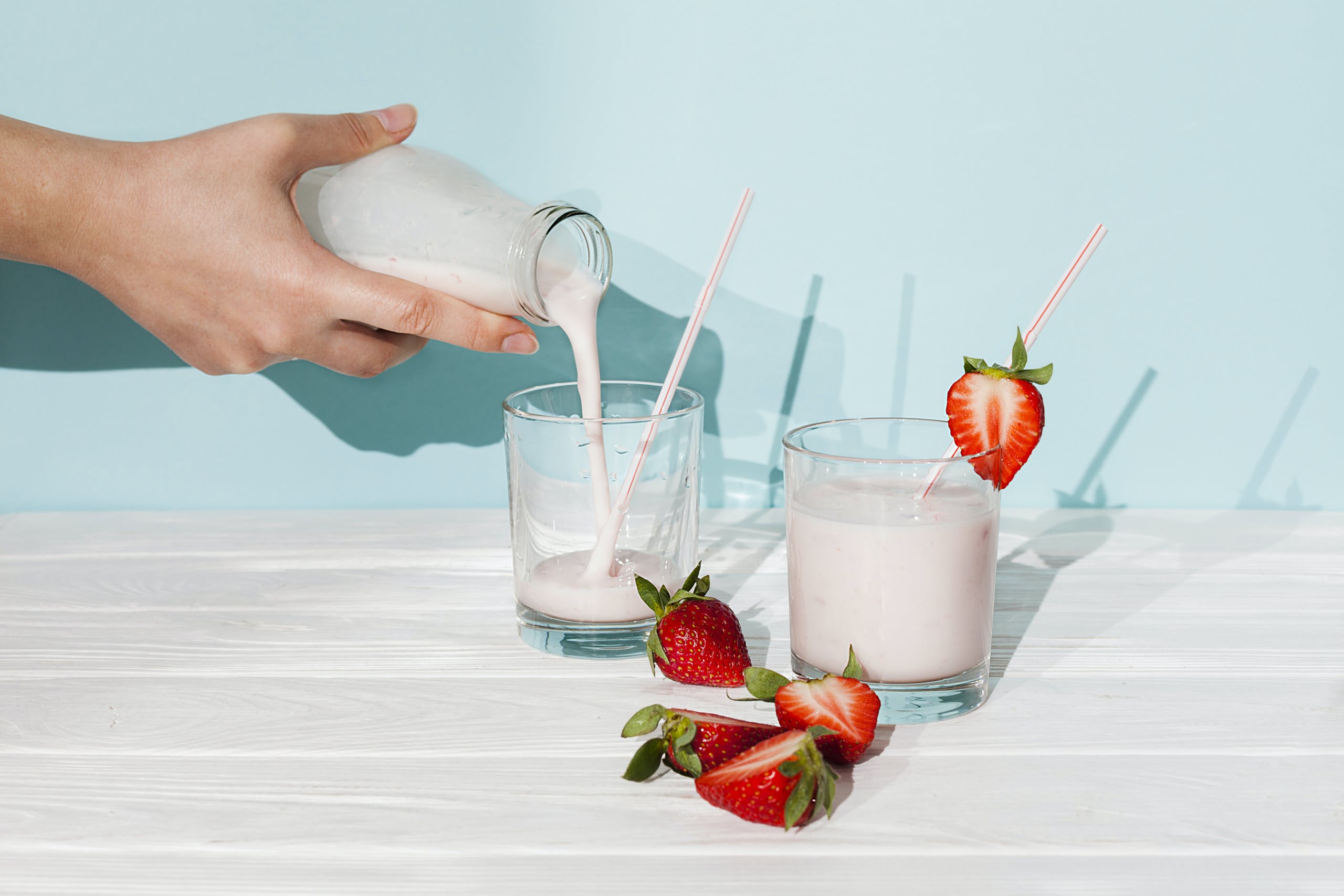Milk, yogurt, and cheese are considered as dairy products. They are all rich in vitamins, minerals, and especially calcium. Dairies are strongly advised for adults, growing children, and elderly people for bone strength and overall health. The daily consumption amount differs according to age and health condition. This June let’s find out more about dairy foods and learn why we should have them in our daily diets.
What Are Dairy Foods
Dairy food is categorized as the foods obtained from milk and the main dairy products are milk, yogurt, cream, butter, and cheese. Generally, cow’s milk is used to produce dairy foods but sheep and goat’s milk can also be used. Here are dairy products rated beginning from healthiest:
1. Yogurt
Yogurt is the most beneficial and healthy dairy food due to its probiotic effect and easiness of digest. The good bacteria culture that is used to ferment the yogurt is beneficial for gut health. That’s why yogurt is highly recommended to regulate bowel movement. Yogurt is easily digested compared to other dairy products because the lactose in it is already broken down during the fermentation process. So it is a safe dairy food even for lactose intolerant individuals. Also, a study showed that people consuming yogurt regularly have a healthier daily diet, lower blood pressure, and blood sugar.

2. Cheese
Cheese is fermented or cultured generally, which removes the lactose. That's why it is the second-best dairy option to consume. Some resources argue that cheese is good for dental health because it increases saliva production and protects teeth from cavities. It should be noted that cheese often has saturated fats in it and can increase cholesterol.
3. Cream
The cream is obtained by skimming the fatty part that rises to the top of milk. The fat amount of creams differs according to the milk it is produced and the lactose amount is low when consumed in small doses. The lactose percentage is lower compared to milk but high-fat content can increase cholesterol.

4. Butter
Butter is produced by churning cream or milk in order to separate fat and liquid parts. It is consumed by 80% of fat and since it is separated from the liquid part, the lactose amount is low.
5. Milk
It is the main component of dairy products and can be obtained from cow, goat, or sheep. It has protein, riboflavin, thiamine, vitamin A, vitamin B12, calcium, magnesium, potassium, selenium, and zinc. You can prefer low-fat or nonfat milk options so that you can increase your milk consumption without elevating your fat intake. It’s the most lactose rich dairy food and can cause digestive problems for lactose intolerant individuals.
The Importance of Dairy Foods for Our Health
- Dairy foods are rich in minerals such as calcium, zinc, and iodine
- High protein source
- Has vitamin A, D, B12, and B2
- Essential for bone strength
- Reduce blood pressure and risk of heart disease

Daily Consumption
The United States Department of Agriculture advises adults to consume 3 servings of dairy foods per day. This amount increases to 4 servings for women aged over 50 and men aged over 70. The advised amount for children is 2-2.5 and 3.5 servings for teenagers per day.
1 serving is equal to:
-1 cup of milk -250 ml
-3/4 cup of yogurt-200 grams
-2 slices of hard cheese -40 grams
-1/2 cup of cottage cheese -120 grams
If you think you don’t consume enough dairy, you can try these methods to increase your dairy food intake:
- You can add cheese to your salad, wrap, sandwich, pasta or omelet
- Prefer milk or yogurt-based smoothies
- As a snack or dessert eat yogurt with fruits
- Use milker making oatmeal instead of water

What Happens When You Lack Dairy Foods in Your Diet
- You may lack essential vitamins and that will make you sick easier
- Bone and muscle degradation in the future due to protein deficiency
- Calcium deficiency leading to bone and muscle degradation, dental problems and osteoporosis in the future
- Zinc deficiency may cause a reduction in energy, nerve function, and immunity
- Phosphorus reduction in the body that will affect bone and dental health
If you prefer a dairy-free diet because of some health constraints, you should take these vitamins and minerals from other sources to meet your daily requirement.
What is Lactose and Lactose Intolerance
Lactose is the disaccharide made of glucose and galactose and its the sugar found in milk. The human body has lactase enzyme to break lactose down to its monosaccharide components in order to digest the milk products. Lactose intolerant people lack or have a small amount of lactase enzyme and that’s why they have a hard time digesting lactose. This intolerance can have a variety of symptoms such as abdominal pain, nausea, bloating, or diarrhea.

If you see these symptoms, you can try a dairy-free diet for a period of time and observe the changes in your body. However, keep in mind that you should take the nutrients you need especially calcium. Soy, rice, oat, almonds, tofu, kale, and broccoli are some non-dairy calcium sources.
A Different Dairy Product You Can Try: Kefir
Kefir is one of the healthiest dairy foods you can add to your daily diet. It is produced by adding kefir grains to animal milk and fermented afterward. It has good bacteria that are beneficial for gut health and helps break down lactose. Its a natural probiotic and furthermore a study showed that kefir can reduce lactose intolerance symptoms by 54-71% because it is fermented. You can drink plain kefir, but if you don’t like the taste you can turn it into a smoothie by blending it with banana or strawberry.












